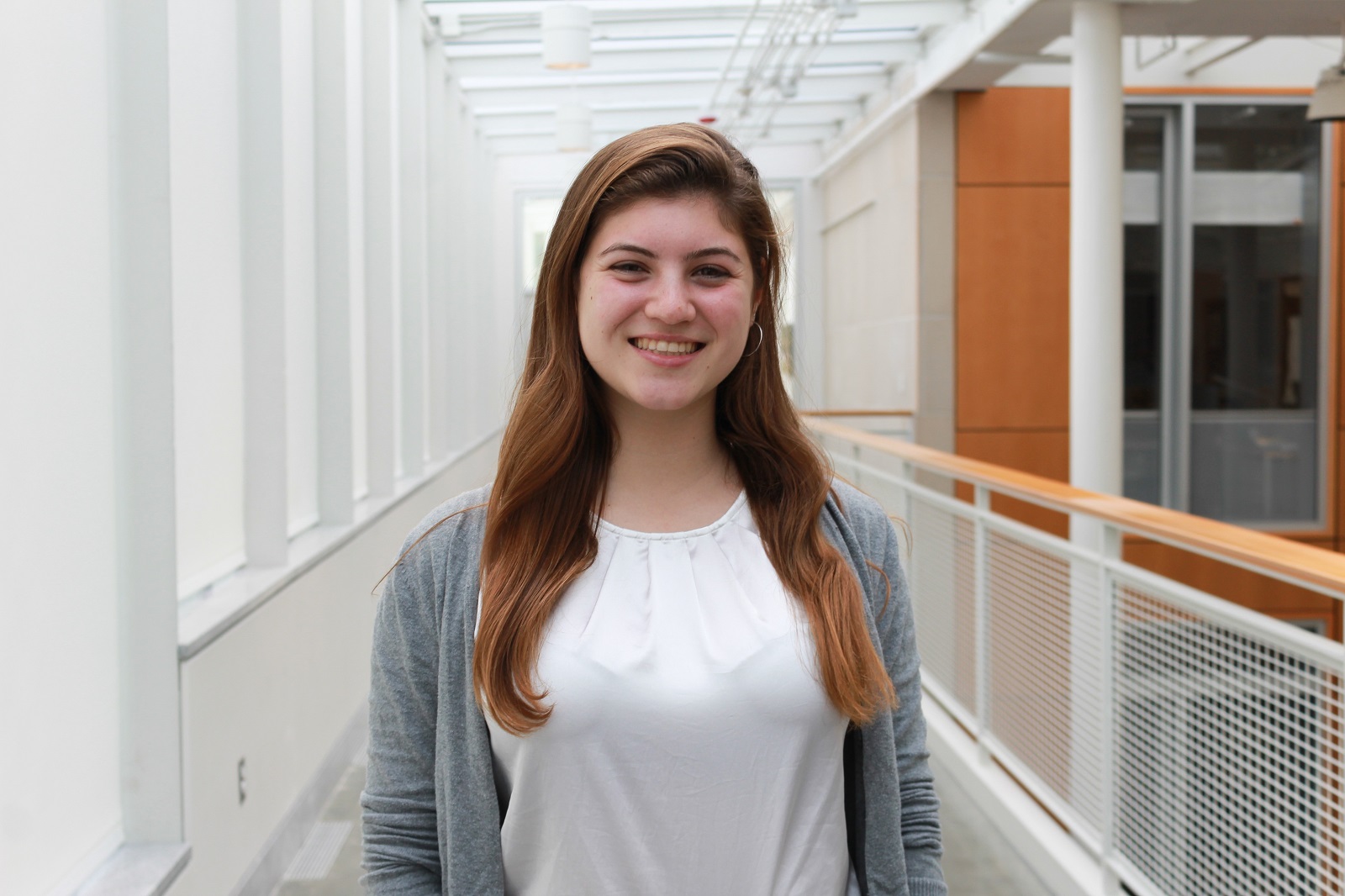DNS undergraduate student accepts NASA internship
When we hear NASA (National Aeronautics and Space Administration), naturally we think space exploration and probably don’t automatically associate NASA with nutrition. In fact, NASA has a strong nutrition program and is not only exploring space, but also exploring ways to maintain optimal nutrition and mitigate the negative effects on the body for astronauts on an extended space flight mission. Scott M. Smith, Ph.D., NASA nutritionist and Manager for Nutritional Biochemistry, has studied nutrition aboard the International Space Station by tracking what astronauts eat and how their body mass and health change over time in microgravity (see A Successful Mission Starts with Nutrition).
The Division of Nutritional Sciences (DNS) at Cornell University and NASA intersected in March 2017 when Dr. Smith came to campus as the guest speaker for The Joyce Lindower Wolitzer '76 & Steven Wolitzer Nutrition Seminar in the Division of Nutritional Sciences. His talk, titled How Nutrition Fuels Human Space Flight, outlined how his research program is working to mitigate the negative effects on the human body from space flight through good nutrition. To accomplish this, we need to fully understand the role of nutrition in space flight by looking at not only nutrient requirements and how many calories, protein, carbohydrates, iron, calcium, zinc, etc. are needed in a day, but also the interaction of those nutrients with the physiological systems.
DNS and NASA are once again crossing paths in the form of an internship offered to Emily McGrath, CALS NS Class of 2022, which she has accepted for Summer 2021. Emily is a member of the Didactic Program in Dietetics and pursuing a bachelor’s degree in Nutritional Sciences with a minor in Applied Economics.
Dietetics students are encouraged to explore dietetics through summer internships and field experiences. Such experiences can highlight the wide range of opportunities in dietetics, including research, sports, public health, management and clinical Registered Dietitian roles. The Dietetics programs at Cornell, including the DPD and graduate Dietetic Internship with Ph.D. and M.S. options, prepare graduates to be leaders in the field.
Growing up in Reston, VA, Emily, an avid reader, started reading books about nutrition while still in middle school and became interested in the relationship between nutrition and chronic disease. After attending a lecture by the author of one the books she read, Emily wanted to learn more about how to eat to maximize her health; this led to thinking about how to form a career and what she could study in college. “I was looking for something at the corner of what I find interesting and what can I do to contribute positively to society. I was already interested in nutrition and I started researching what sorts of careers a nutrition degree leads to. I quickly learned that nutrition, in fact, has a huge opportunity for impact. Everyone is required to eat for survival, so food is a pretty unifying factor and therefore largely impactful. Nutrition can bolster communities, affect sustainability goals, prevent or reverse chronic diseases, even keep humans healthy in space.” Emily began her college career at Virginia Tech, and while she loved her time there, transferring to Cornell had always been her plan. Since Cornell offers opportunity for community involvement, research, food service, public policy and more, Emily felt that coming to Cornell would allow her the most room for creativity and exploration in designing a career she wanted.

Emily was aware that there was a Nutritional Biochemistry Lab at NASA and that NASA offered internship opportunities. She applied for these competitive positions through the NASA-agency intern portal and was matched with Dr. Smith’s team. Her main project this summer will be evaluating existing data relating bone health and nutrition in spaceflight and ground—based analog studies. She’s hoping that this internship will help her to focus her interests as she heads towards her senior year. If this internship shows her that her real interests lie in research, then this experience will help open doors to more opportunities. Emily says her time at Cornell has been invaluable, not just for her education and career trajectory, but for the lifelong friends she has made and for being introduced to people very different from herself in backgrounds and in goals thereby expanding her worldview and learning about what matters to her classmates and peers.
Cornell has really changed my perception from feeling like careers are just pre-existing slots to thinking that you graduate with the toolkit to forge your own path.
In her spare time, Emily runs about 5 miles a day, loves biking around Ithaca and hopes to complete the 100-mile loop around Cayuga Lake in a break between finals. She enjoys knitting, reading (contemporary fiction, essays, and travel), hiking and camping.
To learn more about the Division of Nutritional Sciences please visit our website or follow us on Twitter | Facebook | Instagram | LinkedIn.